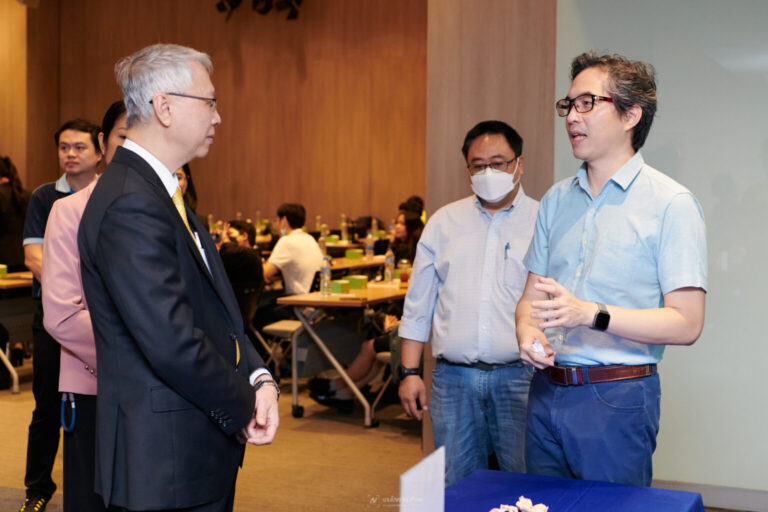

February 17, 2025
Room 910, 9th Floor, Medical Learning and Laboratory Building, Faculty of Medicine Ramathibodi Hospital
The Faculty of Medicine Ramathibodi Hospital, Mahidol University, and the National Metal and Materials Technology Center (MTEC), NSTDA, signed a Memorandum of Understanding (MOU) to establish a medical research and innovation network. This collaboration focuses on the development of advanced technologies and materials to enhance healthcare and treatment efficiency, addressing medical challenges and promoting public health in Thailand. Additionally, the partnership aims to translate research into real-world applications and advance product development in the country’s healthcare industry.
Ramathibodi Hospital and MTEC. The partnership aims to translate research and innovation into practical applications for patient care and medical technology development. Additionally, it will support the showcasing and dissemination of jointly developed research and innovations to a broader audience.

Professor (Clinical) Dr. Arthit Angkananon, Dean of the Faculty of Medicine Ramathibodi Hospital, stated that 3D printing technology and biomaterials represent a significant advancement in patient care, particularly for those requiring personalized medical devices such as custom prosthetic bones or rehabilitation aids. These technologies allow medical professionals to design and manufacture patient-specific devices with high precision, improving treatment outcomes. Additionally, they help reduce costs and production time compared to importing medical equipment from abroad.

Professor Dr. M.L. Chakri Kitiyakon, Deputy Dean for Innovation and Partnerships at the Faculty of Medicine Ramathibodi Hospital, Mahidol University, stated that this collaboration marks a significant step in integrating materials science with medicine. The partnership will enhance opportunities for developing innovations that address patient needs and contribute to improving the quality of medical treatments.

Associate Professor Dr. Toemsak Srikhirin, Director of the National Metal and Materials Technology Center (MTEC), stated that MTEC is committed to leveraging technology and materials science to maximize benefits in the medical field. He expressed confidence that this collaboration would lead to the development of high-quality medical products with strong commercialization potential in the future. Several research projects from this partnership have high potential for industrial production, particularly in the medical device sector, such as supportive medical equipment like the Ross-Back Support. MTEC hopes that this collaboration with the Faculty of Medicine Ramathibodi Hospital will drive domestic production, reduce imports, and create new opportunities for businesses in the healthcare industry.



As part of the event, a panel discussion was held on the topic “Advancing Healthcare through Material Science Innovations”, where experts from various fields exchanged insights and explored how materials science can enhance medical treatments. The discussion covered several key innovations, including:
– Emergency medical service vehicle for emerging infectious diseases, designed with structural safety standards, an advanced air management system, and a digital emergency response system
– Semi-automated back support and reinforcement system for medical missions (Ross-Back Support)
– Specialized nutrition for individuals with swallowing difficulties
– Ultrasound-guided medical procedure training devices
– Surgical suturing practice materials










This collaboration represents a significant step forward in integrating medical and materials science knowledge, with the shared goal of developing effective medical innovations that address treatment needs and can be manufactured domestically. This approach will help reduce reliance on imports while creating new opportunities for Thailand’s medical industry. Both parties will collaboratively develop research projects, organize knowledge exchange activities, and continuously drive research outcomes toward practical application.

